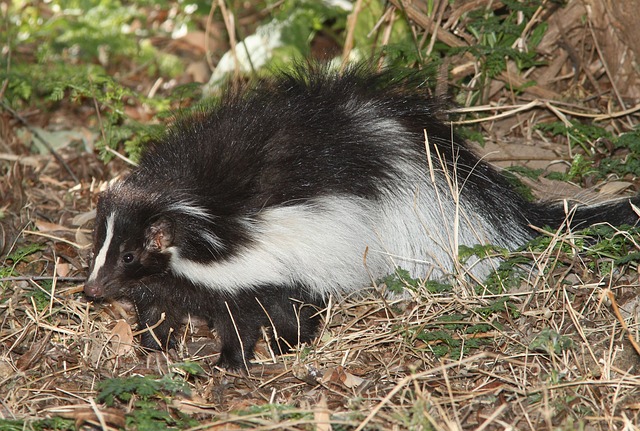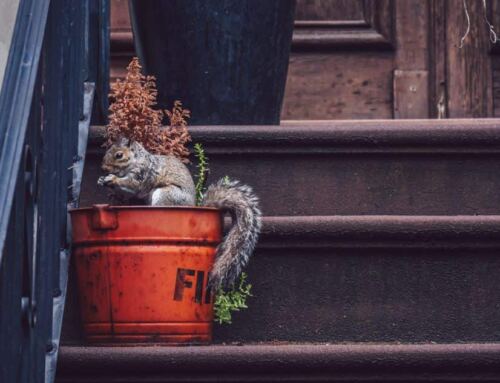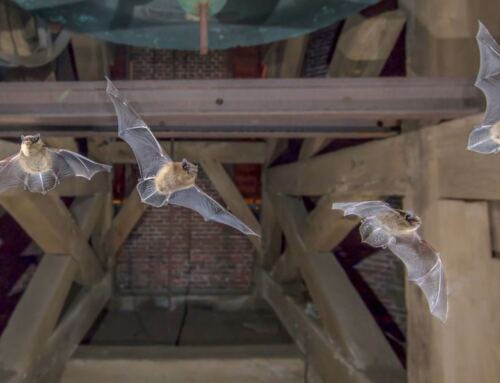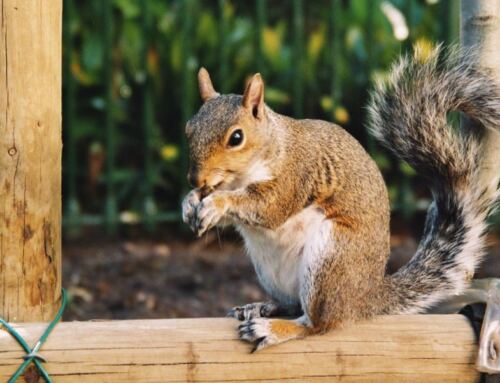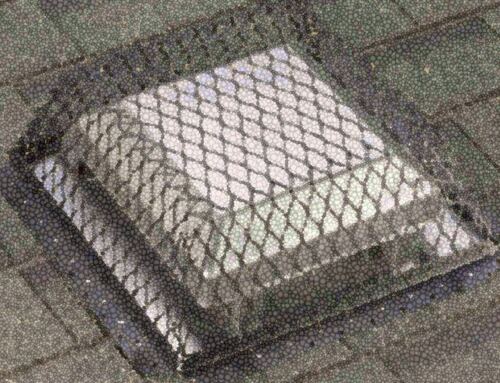Figuring out what to do when a skunk enters your property is a dilemma that many homeowners face. Here’s what you need to know about these creatures, including what they can do to your property and how to stop them.
Problems that skunks can cause on your property
They may leave a stinky smell behind if something startled them and caused them to spray. They might knock over plants or dig holes in your lawn in search of food such as small insects, worms or larvae. You may find that the garbage you left out the night before for a morning pick-up has been scattered all over the road and yard overnight.
The presence of skunks can make you too nervous to relax in your own yard in the evenings, for fear of being sprayed. And if you have pets that you let out in your yard for a “bathroom break” at night, there’s always the risk that they’ll be the ones to get sprayed, leaving you with a stinky clean-up job and lingering odor for weeks!
Finally, these animals sometimes carry rabies or other infections that can be passed along to humans or pets, so as a precaution, it’s best not to be in close contact with wild animals such as skunks.
Make sure your property isn’t attracting skunks
The first step in dealing with skunks on your property is to make sure you’re not inadvertently attracting them.
Don’t leave the neighbourhood skunks an invitation to dine in your yard by leaving pet food out overnight. Don’t leave them with easy access to your kitchen scraps in the garbage either. Store your garbage bins in your fully secured garage or shed if possible. And no matter what, always use tight-fitting lids on your refuse containers to prevent wildlife from snooping in them.
If you have trees, shrubs, or other plants that produce edible fruits, nuts, or even corn, harvest them promptly when they ripen and pick up any stray edibles that find their way to the ground. The idea is for you to harvest them as soon as they’re ready for eating so that neighbourhood skunks don’t associate your yard with being a great source of “leftovers” for their dining pleasure.
Look out for dark, quiet, den-like spaces that look inviting to skunks
If a skunk wanders onto your property and likes what they see, you don’t want them to decide it’ll make a perfect place to call home, and worse, raise a family! Make regular inspections of the area surrounding your shed and deck – digging dens beneath these structures is a popular activity for skunks. Seal off any possible entrance points to your shed to prevent these animals from getting inside.
For maximum protection, dig a trench that’s 30 cm wide by 30 cm deep around the base of your deck and shed. Place wire mesh in an L-shape around the entire structure, then fill it in again with dirt, stone, or whatever landscaping material you desire. This will make it difficult for skunks to dig an access point to a potential den beneath it.
If a skunk enters your property, don’t make them feel welcome
Take measures to avoid accidentally drawing skunks to your property via food sources or warm, inviting places for a den. This way, they’re likely to skip your place and move on to more attractive living areas instead. And if you want help to assess your property’s risk of attracting a skunk or to get rid of one that’s already there, don’t forget that you can always call on a professional for help and advice. You definitely don’t have to struggle with a skunk problem on your own!
Live in Burlington, Oakville, Milton or surrounding areas and have found a skunk wreaking havoc? Contact Regional Wildlife Services today for a removal and remedial quote!
Want to learn more about skunks and getting rid of them? Read more articles and tips about skunks from our blog.
Halton Region Info You Should Know! Skunks have been added among animals potentially carrying rabies in the local area. Learn more.

